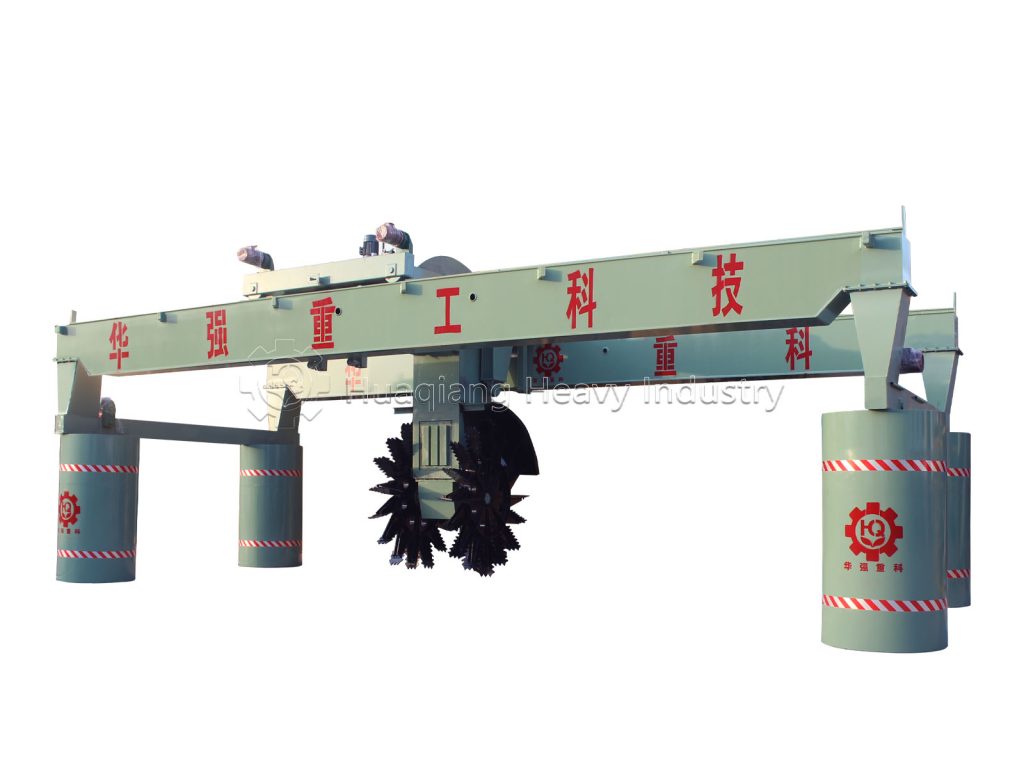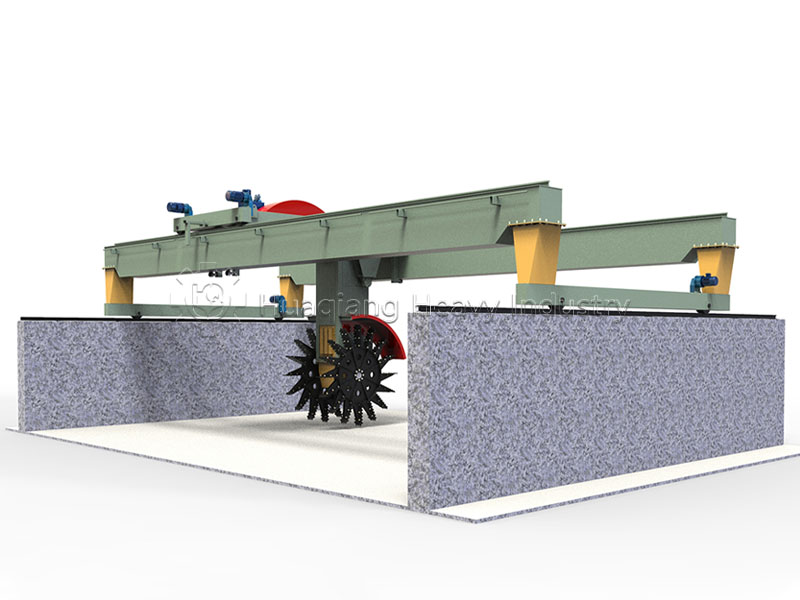In today’s pursuit of sustainable development, organic agriculture is flourishing. Central to this green revolution is the innovation in organic fertilizer production technology. The emergence of large wheel compost turners, a pivotal type of compost fertilizer machine, has revolutionized traditional methods. This equipment is now a cornerstone among the essential equipments required for biofertilizer production, dramatically enhancing efficiency and quality in bio-organic fertilizer output.
This evolution underscores the critical relationship between individual components and the entire production line. A single fertilizer machine, like a composter or granulator, functions as a key part of the integrated system. Ultimately, the synergy between each piece of fertilizer equipment is what defines the performance and success of the complete fertilizer production machine operation.
The Large Wheel Turner: A Revolutionary Composting Innovator
Traditional composting processes are often time-consuming and labor-intensive, requiring significant manual turning to ensure proper fermentation. The large wheel compost turning machine perfectly solves this challenge. Through its unique large-wheel design, this efficient equipment can easily turn several tons of compost material, dramatically improving oxygen circulation and accelerating organic matter decomposition.
Compared to small-scale turning equipment, large wheel turners demonstrate incomparable advantages: greater processing capacity, lower energy consumption, and simpler operation. A standard model can process 200-300 cubic meters of compost material per hour – more than 50 times more efficient than manual turning.
A Complete Solution for Bio Organic Fertilizer Production
The large wheel turner is just one critical component in modern bio organic fertilizer production lines. The complete process also includes raw material pretreatment, fermentation control, crushing and screening, and organic fertilizer granulation. The organic fertilizer granulation machine transforms fermented materials into uniform granules for easier storage, transportation, and application.
This integrated production model not only improves fertilizer quality consistency but also significantly reduces production costs. Data shows that organic fertilizer plants using modern equipment reduce production costs by about 35% compared to traditional methods, while improving product quality by nearly 50%.
The Intelligent Future of Composting Equipment
With the development of IoT technology, new-generation large wheel turners are beginning to incorporate intelligent control systems. These advanced machines can monitor key parameters like pile temperature, humidity, and oxygen levels in real-time, automatically adjusting turning frequency and intensity to ensure optimal fermentation conditions.
Looking ahead, intelligent composting systems combining artificial intelligence and big data analytics will become industry standards. These systems will not only optimize fermentation processes but also predict ideal production parameters based on material characteristics and environmental conditions, pushing organic fertilizer production to new heights of precision and digitalization.
The innovation of large wheel turners and their supporting equipment is redefining what’s possible in organic fertilizer production. For producers committed to sustainable agriculture, these technological advances mean greater efficiency, lower costs, and superior products – the very keys to the future development of organic farming.




